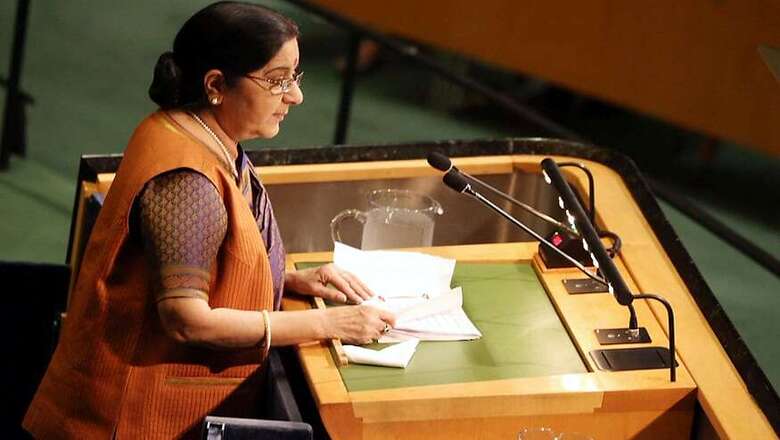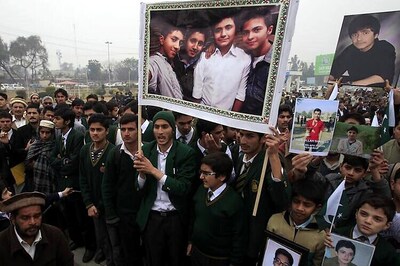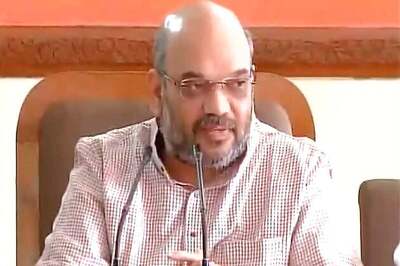
views
United Nations: External Affairs Minister Sushma Swaraj on Saturday sent a strong message to China on fighting terrorism, without naming it or Jaish-e-Mohammad chief Masoor Azhar, by urging the international community to accept that terror is an “existential danger” and the world must stop differentiating between good and bad terrorists.
In her address to the 72nd UN General Assembly session, Swaraj wondered how the world will fight the menace if the UN Security Council cannot even agree on the listing of terrorists.
“If we cannot agree to define our enemy, how can we fight together? If we continue to differentiate between good terrorists and bad terrorists, how can we fight together? If even the United Nations Security Council cannot agree on the listing of terrorists, how can we fight together?” she asked.
Swaraj was referring to China, a veto-wielding permanent member of the Security Council, which has repeatedly blocked India's move to put a ban on Masood Azhar under the Al-Qaeda Sanctions Committee of the Council. The JeM has been put in the banned list.
“I would like to request this august assembly to stop seeing this evil with self-defeating and indeed meaningless nuance. Evil is evil. Let us accept that terrorism is an existentialist danger to humankind. There is absolutely no justification for this barbaric violence," she said.
Swaraj called on the UN member states to display their new commitment by reaching agreement on the Comprehensive Convention on International Terrorism this year itself.
Although India proposed a Comprehensive Convention on International Terrorism (CCIT) as early as in 1996, yet two decades later the United Nations has not been able to agree upon a definition of terrorism, she rued.
“We have been the oldest victims of this terrible and even traumatic terrorism. When we began articulating about this menace, many of the world’s big powers dismissed this as a law and order issue. Now they know better. The question is: what do we do about it?" she asked.
"We must all introspect and ask ourselves whether our talk is anywhere close to the action we take. We all condemn this evil, and piously resolve to fight it in all our declaratory statements. The truth is that these have become rituals," she said.
"The fact is that when we are required to fight and destroy this enemy, the self-interest of some leads them towards duplicity," Swaraj said.




















Comments
0 comment